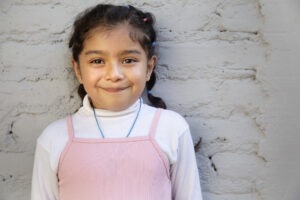What Does Developmental Coordination Disorder in a 5-Year-Old Mean?
When your child is 5, you expect to see growing independence – zipping up jackets, scribbling letters, or catching a ball with friends. But what if these everyday tasks remain unusually difficult? What if your child avoids playground games or struggles with basic self-care? These moments can leave parents wondering: Is my child just clumsy, or is there something more?
This is where developmental coordination disorder (DCD), also known as dyspraxia, comes in. DCD is more than simple clumsiness – it’s a recognized neurodevelopmental condition that affects how a child plans and carries out coordinated movements. Everyday activities like using utensils, cutting with scissors, or handwriting can feel like uphill battles.
About 5–6% of school-age children are thought to have DCD. Symptoms often become more noticeable around kindergarten age, when fine motor and gross motor demands increase.
What Causes Developmental Coordination Disorder?
If you’ve ever wondered what developmental coordination disorder is caused by, you’re not alone. The truth is that experts don’t know the exact reason why some children develop DCD. What they do know is that it’s not a matter of laziness or intelligence. Instead, it’s related to how the brain organizes and carries out movement.
Researchers suggest several possible contributing factors:
- Brain connectivity differences – Children with DCD may process motor planning signals less efficiently, making movements awkward or harder to control.
- Premature birth or early complications – Babies born preterm or with medical complications have a higher chance of developing motor coordination difficulties.
- Genetic links – Certain genetic conditions are associated with higher risks of motor delays. (Check out: Genetic Causes of Developmental Coordination Disorder in 5-Year-Olds)
- Co-occurring conditions – DCD often overlaps with ADHD, speech/language delays, or learning challenges.
It’s important to remember: these factors don’t mean parents caused DCD. It’s a neurodevelopmental difference – not something that results from how a child is raised.
What Does Global Developmental Delay Mean?
Sometimes, motor struggles occur alongside other developmental differences. Global Developmental Delay (GDD) refers to significant delays in two or more areas – such as motor, cognitive, or social-emotional skills.
A child with DCD may also have GDD, which is why comprehensive evaluations are often recommended. According to the American Academy of Pediatrics (AAP), looking at the “whole child” helps identify whether coordination issues are part of a broader developmental profile.
When Should I Seek Support?
It’s true that kids develop at different rates. But if your 5-year-old:
- Still struggles with utensils, buttons, or zippers
- Has difficulty riding a tricycle, kicking, or throwing a ball
- Avoids fine motor activities like drawing or puzzles
- Seems unusually clumsy compared to peers
…it may be time to bring your observations to your pediatrician.
Early evaluation matters. Waiting to “see if they’ll catch up” can mean missed opportunities for therapy and support that make daily life easier. Check out What Are the Next Steps for Developmental Coordination Disorder in a 5-Year-Old?
Real-Life Example: Liam’s Story
Liam, a bright and energetic 5-year-old, loved storytelling but avoided drawing and puzzles. His teacher noticed he struggled with scissors and crayons, often becoming frustrated. At home, mealtimes were stressful – he dropped utensils and couldn’t cut food without help.
At first, his parents thought he was just “a little clumsy.” But after using the Family Health Checker, they noticed clear patterns pointing to motor coordination difficulties. With this structured report, their pediatrician referred Liam for occupational therapy.
A few months later, Liam proudly zipped his jacket on his own for the first time. It was a small moment, but one that brought big confidence.
Stories like Liam’s remind us that recognizing challenges early and seeking help can change a child’s daily experience.
How FDNA Helps Parents and Professionals
Parents often notice issues at home long before they’re obvious in a doctor’s office. The challenge is describing them clearly. That’s where FDNA’s Family Health Checker helps.
- Structured input – Parents record developmental observations step by step.
- Early recognition – Patterns become visible, even if they seem small at first.
- Informed referrals – Pediatricians receive clear data to guide next steps.
- Reduced costs – Structured data can streamline testing and avoid repeated evaluations.
📌 Family Health Checker & Early-Detection Plan
Start your report today to track motor milestones, generate structured data, and guide your next pediatric visit.
👉 Begin your Early-Detection Report here.
(Note: All outputs are non-diagnostic and must be validated by clinical evaluation and testing.)
FAQ
- Why is my 5-year-old so uncoordinated?
Some kids are naturally less coordinated, but ongoing struggles with everyday tasks may point to developmental motor coordination disorder. Tracking patterns can help tell the difference.
- What is developmental coordination disorder in 5-year-olds?
DCD is a neurodevelopmental condition that affects motor coordination, making tasks like dressing, writing, or playing ball games more challenging.
- How do doctors diagnose dyspraxia in a 5-year-old?
Doctors look at your child’s developmental history, observe how they handle daily tasks, and may use standardized motor tests.
- Do kids grow out of DCD?
Children don’t simply “outgrow” DCD. But with therapy, many learn strategies that make everyday life easier.
- Is dyspraxia a form of autism?
No. DCD and autism are separate conditions, though they can sometimes occur together.
- What are the red flags for dyspraxia?
Frequent falls, trouble with self-care, avoiding fine motor activities, and frustration during motor tasks are common signs of DCD.
Conclusion
If your 5-year-old struggles with coordination, remember: you are not alone, and it’s not your fault. About 1 in 20 children experience developmental coordination disorder, and with the right support, they can build confidence and independence.
The earlier DCD is recognized, the sooner your child can access strategies and therapies that make a difference.
✅ Next Step: Use the Family Health Checker to organize your concerns, track milestones, and bring clarity to your pediatric visit.



